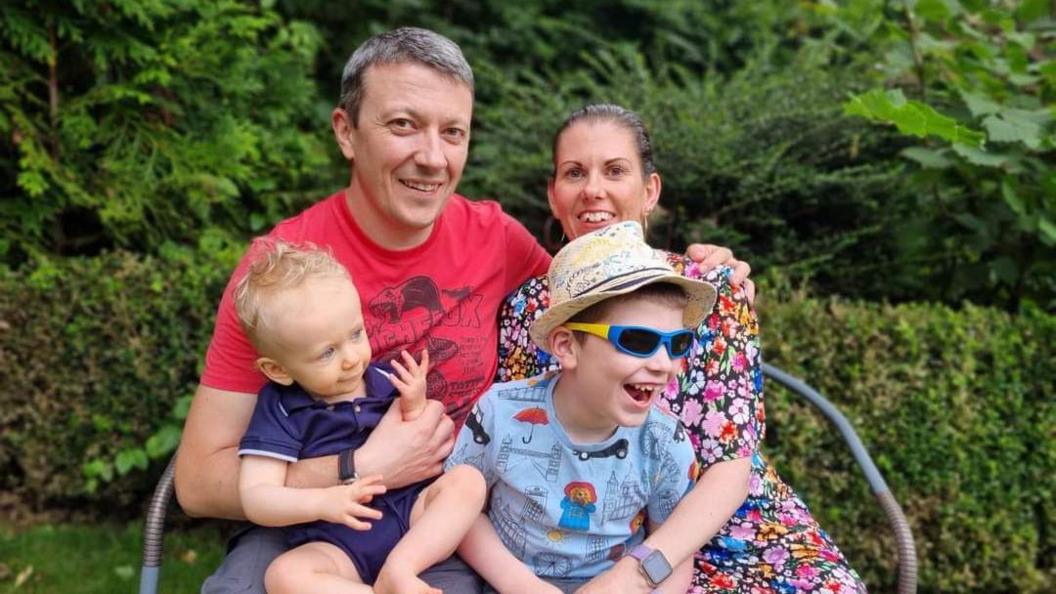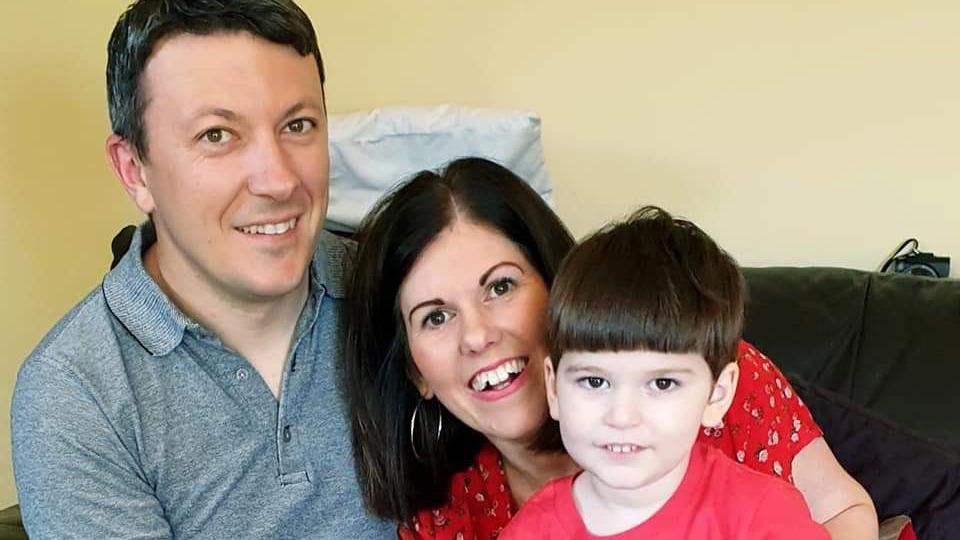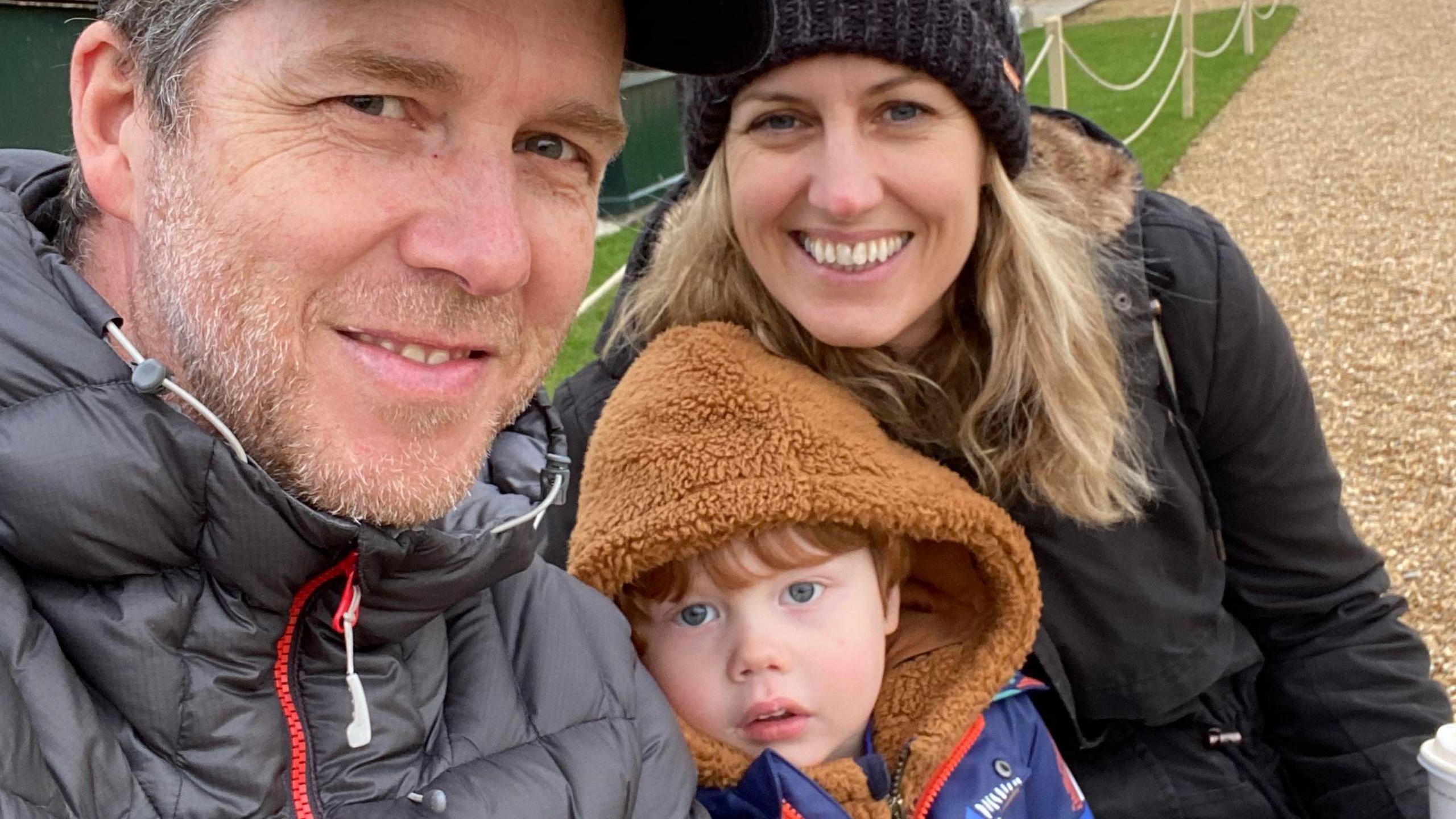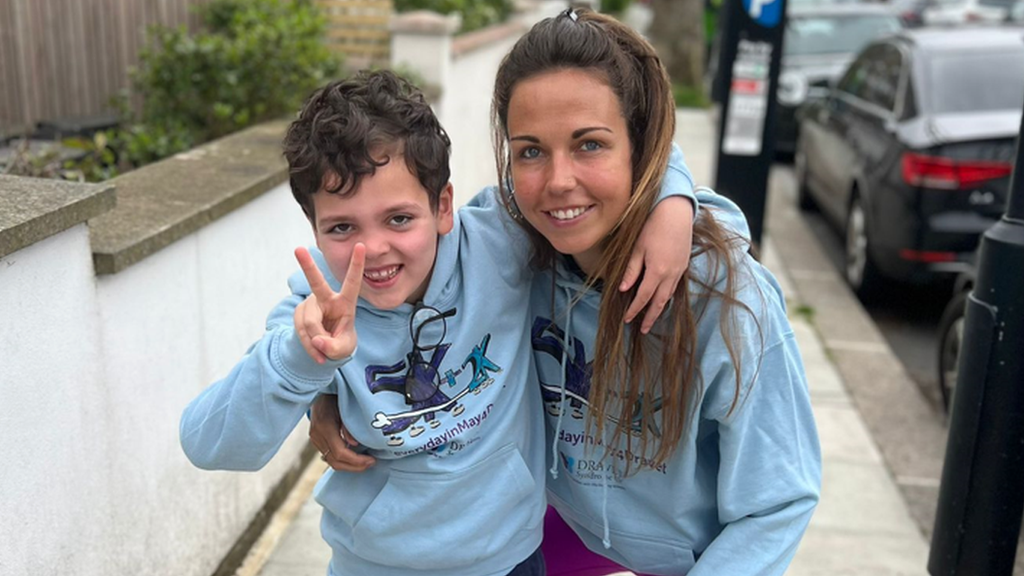'Our boy had multiple seizures before diagnosis'

Emily and Carl De'ath, from Ashford, said their son Curtis had his first seizure at four months old.
- Published
A mum and dad, from Ashford, who found their young son "foaming at the mouth" want to raise awareness about his condition.
Emily and Carl De'ath's son Curtis, who is now seven, had his first seizure at just four months old.
His parents said it took "countless blue light" journeys and intensive care stays before he was diagnosed with Dravet Syndrome.
The couple want to raise awareness about his condition because misdiagnosis and mistreatment can be fatal.
Ms De'ath said on the night of his first seizure she noticed on the baby monitor that "he looked like he was moving about".
She said: "I alerted Carl and he said: ‘don’t worry he is probably just dreaming, go back to sleep’."
But she said "something didn't feel right".
When she crept into his room to check on him she could hear a "choking noise".
She said: "I turned on the light and his eyes were wide and locked open and his lips blue.
"His body was all stiff and shuddering, he looked like he was choking. I screamed to Carl to call an ambulance.”

Ms De'ath said: “Even on the hardest days Curtis always manages to say or do something that makes us smile.”
Dravet Syndrome occurs in around 1 in every 15,000 live births.
It is one of the most common genetic epilepsies, as well as one of the most treatment resistant.
The syndrome causes learning disability and a spectrum of associated conditions, such as autism, ADHD or speech difficulties.
As well as having frequent seizures, Curtis has problems eating and has a feeding tube.
He has developmental delay and attends a Special Educational Needs school.
Ms De'ath said waiting for a diagnosis left them "feeling so helpless and praying for our son".
She said they googled Dravet Sydrome and were "devastated".
"It looked horrific," she said.
Curtis spent the first two years of his life in hospital "every few weeks".
Ms De'ath said: "We were just in survival mode, not knowing what the next day was going to bring."
But she added: "For someone who goes through so much Curtis is so placid and happy which makes it so much harder to watch him suffering.
"Even on the hardest days he always manages to say or do something that makes us smile.”
Follow BBC Kent on Facebook, external, on X, external, and on Instagram, external. Send your story ideas to southeasttoday@bbc.co.uk, external or WhatsApp us on 08081 002250.
- Published5 June 2024

- Published28 June 2023
